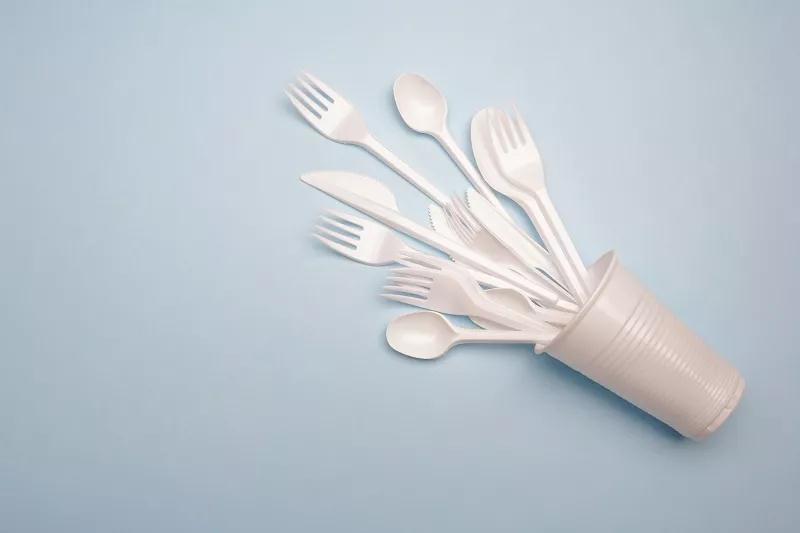According to the first annual report of UK Plastics Pact , more than 1 billion problematic and unnecessary disposable plastic products will be eliminated.
UK Plastics Pact is a cooperation program found by and WRAP and Ellen MacArthur Foundation, in order to combine the enterprises in the whole value chain ,UK government and the non-government organization to create circular economy.
This report offers the whole overview the development of promoting plastic circular economy by UK.
The report shows that members of the British Plastics Convention have reached more than half of their progress towards the goal of all packaging being recyclable.The UK is also more than halfway towards achieving its target of recycling 70% of plastic packaging.
In addition, the members of the Convention have achieved the goal of 30% recycled content in plastic packaging, and have achieved one-third progress.

However, the report also emphasizes that there are still “highly complex” challenges, such as developing films and flexible packaging recycling systems.
The report also proposes four major waste reduction goals:
Goal 1: Eliminate problematic or unnecessary disposable plastic packaging
By the end of 2020, members of the Convention will clear a total of 1.1 billion problematic and unnecessary disposable plastic products. At present, most members have eliminated several types of items such as drinking straws and cotton swabs.

The supermarket has removed 3,400 tons of unnecessary fresh produce plastic packaging, weighing 272 London buses, and removed 137.5 million plastic fruit and vegetable labels.
Goal 2: Manufacture 100% reusable, recyclable or compostable plastic packaging
In 2018, 65% of the plastic packaging sold by Convention members was recyclable. Recent moves include the supermarket removing more than 19,000 tons of non-recyclable black plastic, equivalent to 1.5 billion ready-to-eat plates.
By the end of 2020, all convention members plan to remove 21,000 tons of non-recyclable PVC and polystyrene from their packaging.
In addition, reusable packaging has also increased. For example, the "unpackaged" trial store at Waitrose has refill stations for dry goods, wine, beer and detergent.
A major challenge is to develop a recycling system for plastic films, such as bread bags and potato chips packaging. This system accounts for 25% of consumer plastic packaging, but only 4% is recycled. This requires innovation and increased investment in advanced recycling processes.
Goal 3: 70% of plastic packaging can be effectively recycled or composted
44% of plastic packaging in the UK is currently recycled. This relies on significant new investments in plastics reprocessing in the UK, including new recycling facility factories announced by waste management giant Viridor and Biffa.
At the same time, ensuring the right information for citizens and encouraging them to participate in recycling operations remains a challenge. In this regard, all supermarkets have added the “On-Pack Recycling Labelling” system, and Pepsi, Evian and innocent beverage brands have strengthened their packaging recycling label identification to make citizens more aware of the recycling details.

All UK supermarkets have added the "On-Pack Recycling Labelling" system.
In addition, all hypermarkets help customers increase recycling rates by providing plastic recycling points for stretchable thin-film plastics in stores, such as frozen food bags, transport bags, and bread bags that usually cannot be recycled at home.
Goal 4: All plastic packaging contains 30% recycled content on average
In 2018, the plastic packaging of convention members contains an average of 10% renewable ingredients, which can save more than one million barrels (more than 90000 tons) of oil for the production of primary plastics, equivalent to the weight of more than one million dolphins.
Actions taken by convention members include brand production of 100% renewable water bottles, such as Coca Cola's Glaceau smartwater and highland spring's eco bottles. Renewable ingredients in personal care and laundry products are also increasing.

Coca Cola's Glaceau smartwater eco bottle uses 100% renewable ingredients.
To achieve 30% recycled plastic packaging, the main challenge is to ensure that there are enough high-quality recycled plastics available. That's why it's important to upgrade in the design of recyclable packaging, such as sprite's move from green to transparent bottles this year.
By 2025, the realization of these four goals will not only realize the recycling economy of plastics, but also reduce the production of primary plastics. This can be achieved not only by increasing the content of recycled ingredients in packaging and products, but also by refilling solutions and getting rid of problematic or unnecessary plastics.
<PET bottles recycling solution , http://www.get-recycling.com/solutions_show.asp?id=12>

